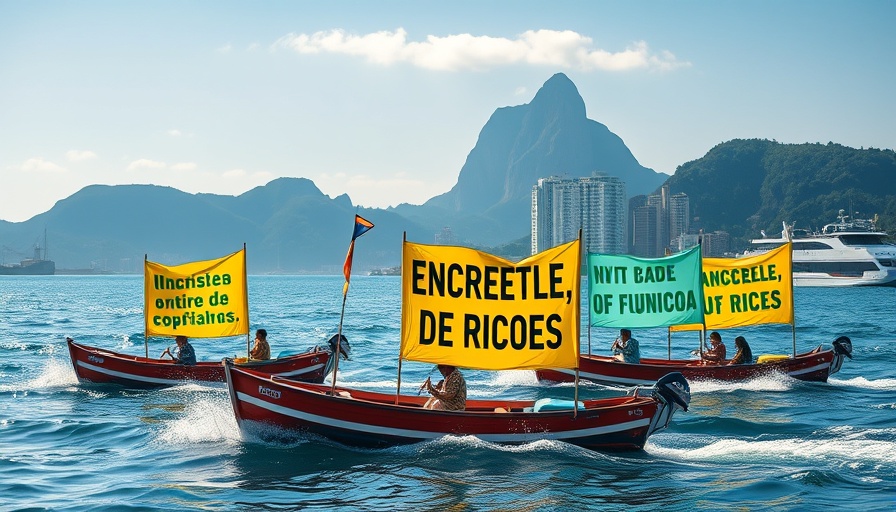
NGOs Challenge Brazil’s Oil Auction Amid COP30 Preparations
In a bold legal move, Brazilian civil society organizations have initiated a legal challenge against the government’s recent auction of oil exploration blocks located at the mouth of the Amazon River. Conducted on June 17, just months ahead of Brazil hosting the COP30 United Nations climate summit, the auction has sparked outrage among environmental groups.
Environmental Implications of the Auction
Instituto Internacional Arayara, a nonprofit, has filed five lawsuits alleging that the auction undermines both Brazil's climate commitments and the protection of sensitive ecological zones. Nicole Figueiredo de Oliveira, the organization's executive director, emphasized that the auction contradicts the government's climate rhetoric. “Brazil is playing a world leader in climate action yet allows a massive expansion of offshore oil drilling,” she explained.
These actions come as Brazil positions itself as a trailblazer in addressing climate change, having pledged to reduce greenhouse gas emissions significantly. However, the environmental assessments related to the auction have come under scrutiny for being outdated or insufficient. Reports suggest that these exploration blocks overlap with Indigenous territories and conservation areas, raising serious ethical concerns about the potential impact on local environments and communities.
The Role of Indigenous Rights and Community Concerns
With several blocks identified for auction sitting perilously close to Indigenous lands, the legal actions highlight crucial discussions around Indigenous rights and environmental conservation. According to de Oliveira, transparency in environmental assessments is lacking. “The true extent of greenhouse gas emissions from potential exploration and production is not clearly understood,” she noted, indicating a significant gap in both data and decision-making.
This situation underscores an inherent conflict for Brazil as it heads towards the international stage at COP30. As nations gather to discuss sustainable solutions to climate change, actions perceived as contradictory can severely damage a country’s credibility.
A Call for Sustainable Practices Amidst Controversy
As NGOs like Arayara challenge these auctions, the discussion extends beyond mere legal battles. It delves into broader themes of sustainable development and responsible consumption. The environmental consequences of increased oil exploration can have far-reaching impacts, not just for biodiversity but for the global fight against climate change.
Many voices advocate for shifting towards a more sustainable future—one that emphasizes renewable energy, eco-friendly products, and sustainable living practices. By embracing alternatives such as solar power, clean energy, and sustainable agriculture, Brazil could set a vital example for others.
What Future Lies Ahead for Brazil’s Environmental Policies?
Moving forward, the outcomes of these legal challenges and the government's response will likely guide Brazil’s environmental policies in the coming years. The preservation of the Amazon and its immense biodiversity is not just a local issue but a global concern, making Brazil’s leadership pivotal.
Activists stress that Brazil’s actions at COP30 will be closely watched, signifying that it cannot afford to ignore the outcry from its citizens and the international community regarding environmental preservation.
Conclusion: Taking Action for a Sustainable Future
The ongoing legal challenges to Brazil's oil auction signal a crucial push towards greater environmental awareness and community involvement. As eco-conscious readers seek ways to advocate for the environment, supporting initiatives that protect natural resources and prioritizing sustainable practices in their daily lives becomes essential. By championing climate action and ethical consumerism, individuals can contribute to a more sustainable world.
 Add Row
Add Row  Add
Add 



Write A Comment